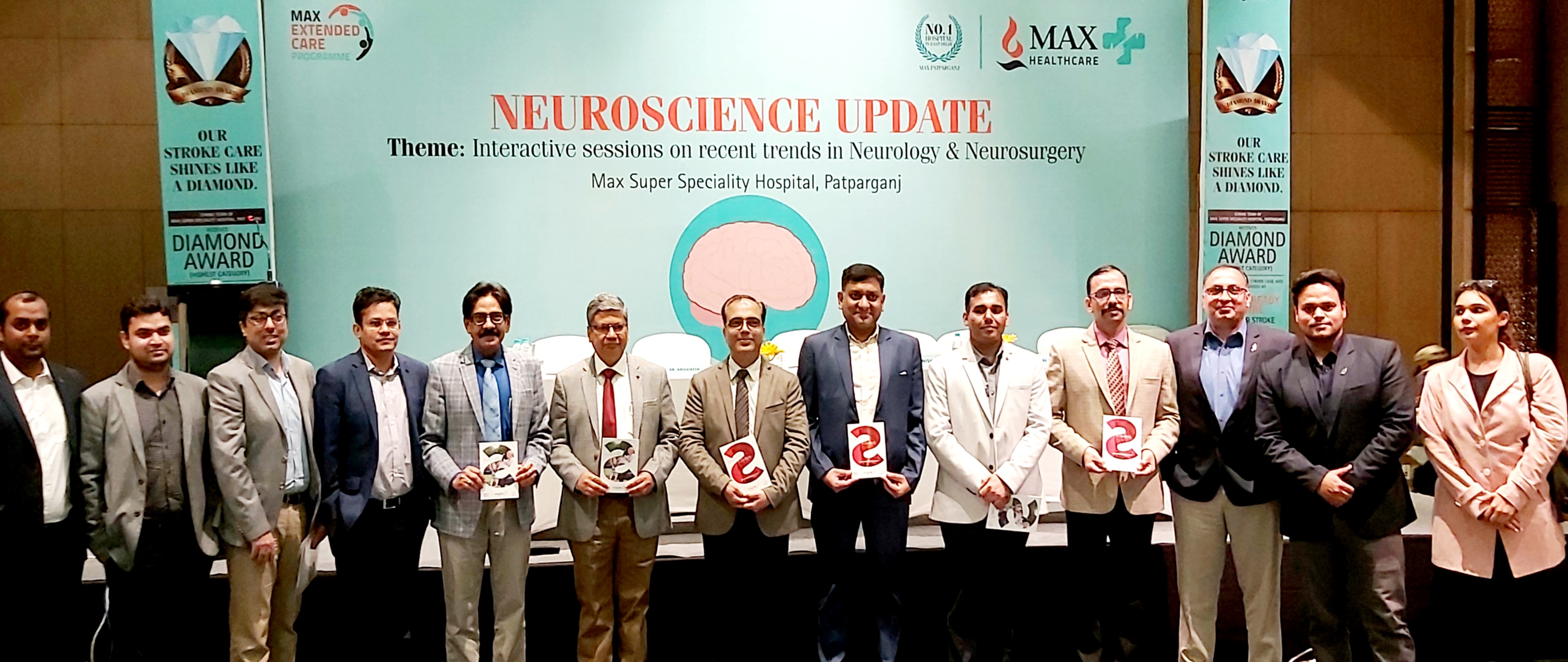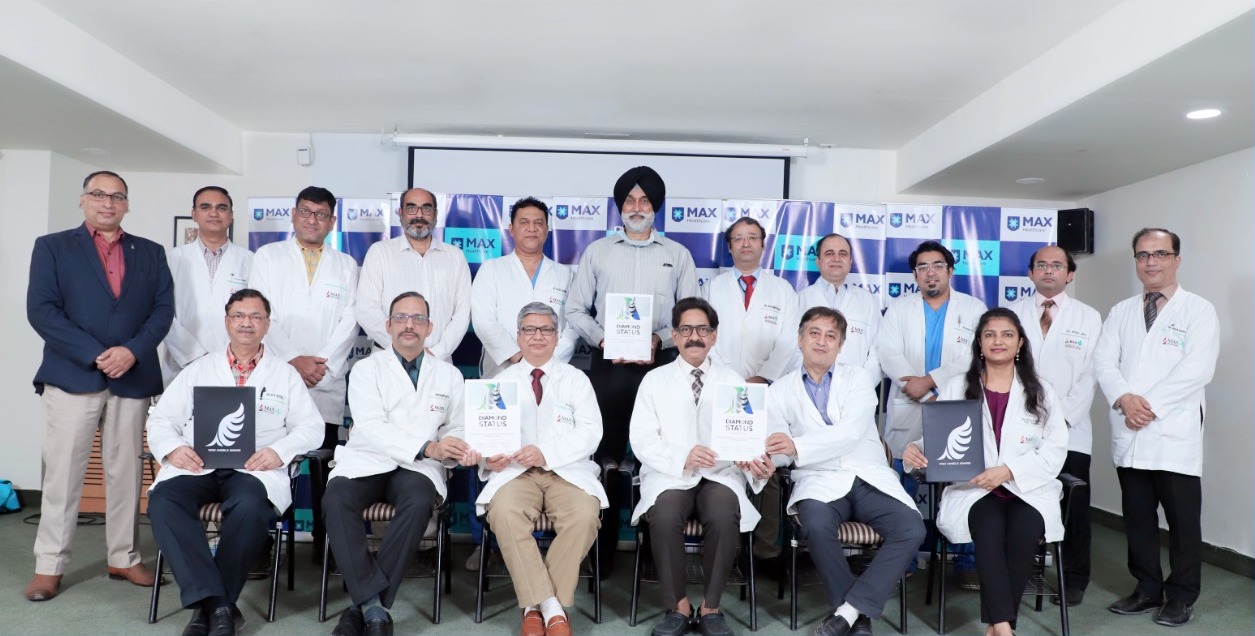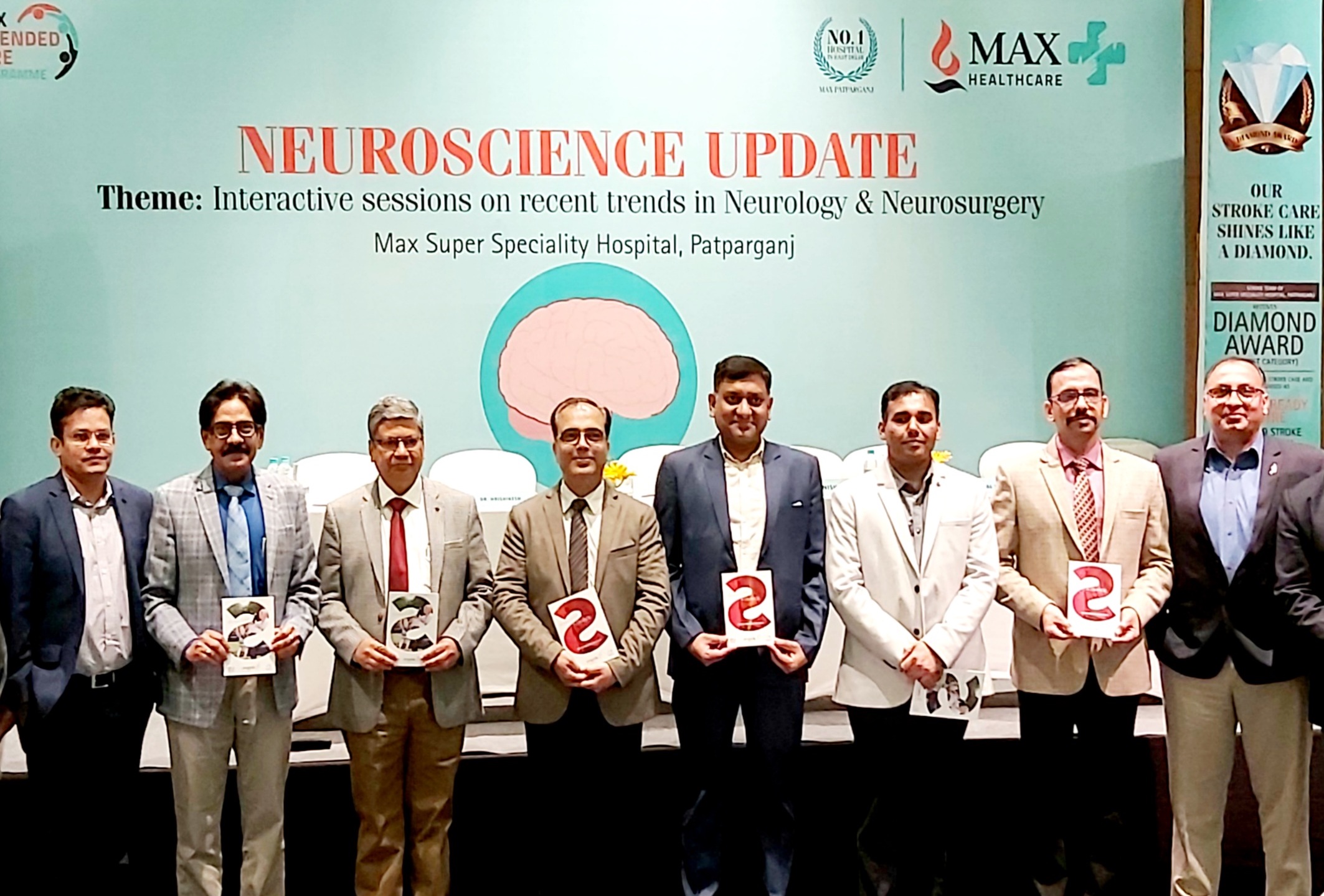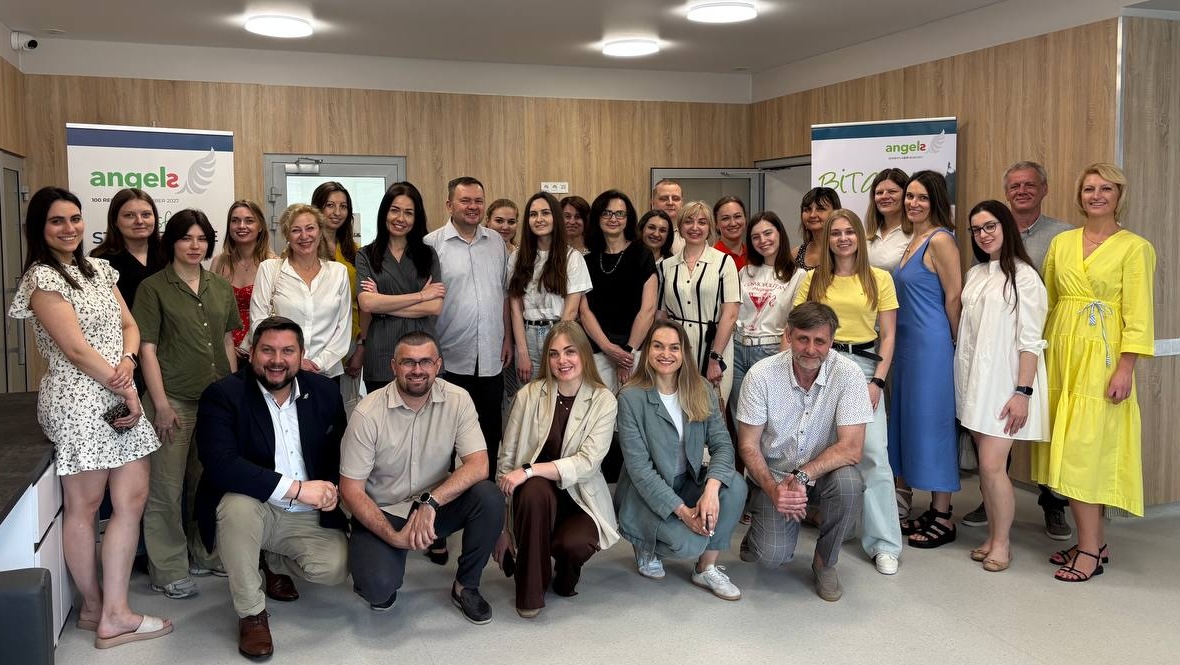
Max Super Speciality Hospital en Patparganj se fundó en 2005, el primer centro de atención terciaria multiespecializado del este de Delhi. En 2016 se llevó a cabo una auditoría de los datos sobre el ictus que darían lugar a una serie de intervenciones para reducir el tiempo desde la llegada hasta recibir tratamiento (door-to-needle, TND). Durante los próximos cinco años se convirtió en líder en atención del ictus, con seis premios de diamante Angels de la WSO en reconocimiento.
Un resumen de la Conferencia Nacional del Ictus de la India en 2019 resume los antecedentes clínicos de esta historia inspiradora de Patparganj. En él, el Dr. Armit Batra, junto con sus coautores, incluido el director sénior de Neurociencias y Neurología del hospital, el Dr. Vivek Kumar, describe un viaje hacia una mejor atención del ictus impulsado por el deseo de dar a los pacientes con ictus una segunda oportunidad en la vida.
El primer paso a lo largo de este viaje fue una auditoría de los tiempos desde la llegada hasta el tratamiento para todos los pacientes trombolíticos entre enero de 2016 y 2018, junto con un análisis independiente del tiempo transcurrido desde la llegada hasta la TAC hasta el inicio del tratamiento. El tiempo medio desde la llegada al tratamiento al tratamiento al inicio de este periodo fue de 64 minutos y se observó que la mayoría de los pacientes tratados en este tiempo habían recuperado su independencia después de tres meses, pero que aún presentaban algunas discapacidades.
Sin embargo, los pacientes tratados en un plazo de 30 minutos o menos tuvieron resultados significativamente mejores. Esto motivó al equipo a revisar su protocolo de ictus para garantizar un cumplimiento del 100 % con el tiempo desde la llegada hasta el tratamiento de menos de 60 minutos, según lo recomendado por guías internacionales, y reducir sistemáticamente sus tiempos de tratamiento mediante una serie de intervenciones y un enfoque de equipo multidisciplinar. Los especialistas en ictus, el equipo de urgencias, el equipo administrativo y los servicios de radiología y laboratorio decidieron conjuntamente las intervenciones específicas de campo, y los asesores de Angels se incorporaron para apoyar la implementación.
El Dr. Batra describe los resultados: “El DTN medio global cayó de 57 minutos en el año 2016 a 48 minutos en 2017, 40 minutos a principios de 2018 y 32 minutos a finales de 2018. El cumplimiento del punto de referencia de <60 minutos aumentó del 58 % en 2016 al 85 % en 2018. El DTN más corto logrado fue de 6 minutos”.
Con cifras como estas, no sorprendió a nadie que el Max Super Speciality Hospital Patparganj recibiera su primer premio al diamante en 2019, una distinción que se ganarían cinco veces más.

El campeón del ictus, el Dr. Vivek Kumar, cita la participación en el registro RES-Q como un hito importante a lo largo del viaje, un proceso que fue respaldado por el asesor de Angels, el Dr. Tarun Gautam, y el director de Angels para el norte de India, William Masih. Dice: “Esto ha facilitado la documentación de nuestros datos sobre el ictus en un formato aceptable a nivel internacional”.
Sin embargo, los cambios más significativos se produjeron en el terreno, donde el Dr. Kumar y su equipo implementaron una serie de intervenciones dirigidas a problemas específicos.
La poca concienciación sobre el ictus en la comunidad médica, lo que provocó retrasos en el reconocimiento de los síntomas del ictus, se había identificado como un impedimento para lograr el objetivo de DTN. Por lo tanto, el hospital se dirigió a médicos de cabecera, personal de enfermería de urgencias y profesionales de urgencias con formación continua sobre los síntomas del ictus y la seguridad y eficacia de los tratamientos de recanalización.
Su análisis también halló que se producían retrasos en el tratamiento como resultado de retrasos en los tiempos puerta-TAC. La solución incluía eliminar la necesidad de registro hospitalario antes del triaje. En lugar de perder un tiempo valioso esperando que el paciente sea ingresado, el paciente es trasladado directamente a la sala de TAC a través de un pasillo verde, y el proceso de registro tiene lugar después de la gestión de la fase hiperaguda.
Una vez que se tomó la decisión sobre el tratamiento, trasladar al paciente a la sala de urgencias para el tratamiento dio lugar a la pérdida de valiosos minutos. Por lo tanto, se acordó que se obtendría el consentimiento informado durante las pruebas de diagnóstico por imagen y que, una vez tomada la decisión terapéutica, la trombólisis comenzaría en la sala de TAC.
Por último, tras haber identificado la concienciación sobre el ictus en general como un desafío importante para superar los retrasos en el tratamiento, el hospital lanzó un programa de divulgación comunitaria para promover la prevención y el reconocimiento de los síntomas.
La presentación del Dr. Batra de 2019 concluyó que las intervenciones específicas del área podrían llevar a una reducción significativa de la DNT, lo que se tradujo en buenos resultados para los pacientes.
Lo que se descuidó fue que, como resultado de estas invenciones, el Max Super Speciality Hospital Patparganj se ha convertido en una inspiración para la comunidad del ictus dentro y fuera de Nueva Delhi. El Dr. Kumar y su equipo han mantenido su DTN medio por debajo de los 30 minutos, y su compromiso de tratar el ictus isquémico de forma cada vez más rápida sigue garantizando que cientos de supervivientes de ictus lleven vidas significativas y sin impedimentos.



